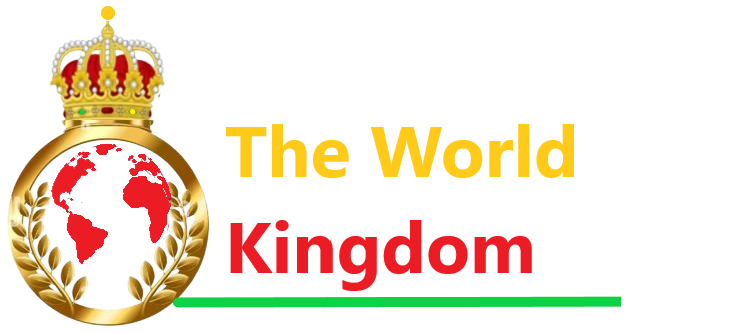Global Public Health and Well-being Initiatives
“The power to consistently create health services is the power of superiority to save more lives.”
The World Kingdom is committed to improving public health and protecting and enhancing the well-being of all people, not just individuals, through organized societal efforts such as promoting healthy lifestyles, preventing disease, combating infections, developing health policies, and addressing social factors (such as air quality, nutrition, and living conditions) to reduce health inequalities and increase life expectancy. Global Public Health and Well-being is administered and governed by the “Emperor of the World and Emperor of Justice” or “Empress of the World and Empress of Justice” ”, in collaboration with Secretariat Council and all heads of state, governments, justice systems, organizations, businesses, entrepreneurs and citizens of all countries. These include:
- Building, managing and operating World Kingdom healthcare facilities and providing healthcare services in all countries. These facilities may include hospitals, outpatient care centres, clinics, pharmacies, dental clinics, veterinary, and specialized facilities such as nursing homes and mental health centres and offer free healthcare (hospitals) to the public in all countries, including urgent or immediately necessary care, such as in emergency rooms and provide for every newborn, a “Baby Gift Box” to the parents at the hospitals. This kit contains essential items for the baby and represents the support offered by Your Imperial Majesty the “Emperor of the World and Emperor of Justice”, Evrad Kounchou Kameugne (founder and owner).
- Esuring the Establishment of a system of general practitioners in all countries, who serve as the first point of contact for general healthcare, acting as the primary caregiver for individuals and their families within the community and assessing, diagnosing and treating a wide range of medical problems, managing chronic diseases and providing preventive care and health education and coordinating with other health services, referring patients to specialists when needed and managing the long-term health and well-being of their registered patient population.
- Contributing to improving global health by funding health and research programs and supply chains such as HIV, cancer, malaria, tuberculosis, mental health, contraceptives, antenatal care, medical equipment, awareness programs, etc., including treatment and access to care by providing peer support, advocacy and information, and campaigning against discrimination.
- Conducting research and evaluation to inform policy and practice of healthcare;
- Facilitating vaccine development, information sharing, and support for resource-limited countries.
- Strengthening global health governance to prevent future pandemics and ensure equitable access to health care.
- Identifying, mitigating, and managing health risks before they become widespread. and Contributing to the improvement of global health through funding health and research programs and supply chains.
- Focusing on preventing and controlling epidemic and endemic diseases worldwide.
- Monitoring, detecting, and responding to infectious disease outbreaks and other public health threats.
- Tracking health crises by collecting and analyzing information, from scientific studies to disease surveillance reports.
- Preparing for and responding to health emergencies, including identifying, mitigating and managing risks, preventing emergencies and supporting the development of tools needed during epidemics.
- Promoting healthier lifestyles by addressing the factors that contribute to disease and fostering overall well-being, and preparing for and responding to health emergencies.
- Fostering international collaboration for developing and implementing effective health policies;
- Setting international standards for health research, biological products, and evidence-based policies.
- Ensuring that Individuals receiving certain income-based benefits are automatically entitled to free prescriptions, free dental treatment, help with sight tests and the cost of glasses, and help with healthcare travel costs.
- Providing countries with technical assistance, training healthcare workers, and supporting national health policies.
- Providing ambulances in conflict zones to reach the most urgent cases of injury and illness.
- Providing resources or assistance to enable research efforts, whether through infrastructure or expertise, to facilitate the advancement of knowledge and innovation.
- Monitoring global health trends and events and supporting the cancer community through the promotion of learning and networking among professionals and policymakers
- Participating in the construction, supply of raw materials, medical products and equipment. This generally involves the sourcing, supply, and management of products and equipment.
- Building a strong support network to cope with the physical and emotional challenges associated with infectious diseases (pandemics, antimicrobial resistance), chronic diseases (cancer, heart disease, diabetes) and diagnosis, where one can find emotional comfort, practical help and knowledge sharing, thus helping to reduce isolation and improve overall well-being.
- Documenting humanitarian crises to raise international awareness and shaping the global health research agenda.
- Building and strengthening local health systems by providing context-appropriate medical equipment (often new, second-hand or donated), improving sanitation and ensuring access to clean water.
- Providing funds for medical aids to cover the cost of equipment or services designed to help manage a health problem or disability, for example: wheelchairs, walkers, hoists, assistive technologies or home modifications (for example, stairlifts, ramps) that facilitate daily life and mobility.
- Influencing decision-makers and addressing the cumulative, long-term, direct, indirect and global consequences of the public health problem within international and national organizations.
- Establishing effective emergency response policies through rigorous planning, coordination with local authorities, clear communication protocols, and adherence to applicable safety standards, as well as requiring the installation of fire-fighting equipment or fire extinguishers for large-scale events, in accordance with a site-specific fire risk assessment and regulatory reform (fire safety).

- Adopting Global Dialogue Forums on Health Issues, with tripartite participants, to discuss the impact of Health diversification;
- Recommending a comprehensive public health approach to suicide prevention and several strategies that states and communities can adopt, including measures such as teaching coping and problem-solving skills to help people manage difficulties;
- Providing tools and systems to manage client interactions and track progress, effectively showcase properties through virtual tours, high-quality photos, and compelling descriptions, identify and reach target audiences with relevant information, track and analyze marketing efforts to identify strengths and weaknesses, and develop the skills and knowledge needed to effectively market and sell properties.
- Providing expertise and guidance to healthcare facilities in various areas, such as strategy, operations, and technology implementation and the necessary resources, support, and tools, such as software solutions, electronic medical records (EMRs), task automation tools, patient management systems, and telehealth platforms, to deliver better patient care.
- Monitoring health trends and improving health information systems to guide decision-making.
- Ensuring all individuals have fair and equal access to healthcare services, regardless of their background or circumstances,
- Participating in job postings, candidate screening, and interview scheduling and recruiting and placing engineers and professionals.
- Promoting and assisting global health through construction, procurement and medical equipment supply.
- Providing support for research and funding applications for projects, World Kingdom tax-backed loans, including negotiating terms with investors and managing the investment process.
- Supporting families facing multiple disadvantages aims to address health problems early, before they escalate into crises.
- Improving inspection practices in healthcare facilities and ensuring greater involvement of experienced experts and Strengthening collaboration with local safeguarding committees during healthcare inspections. Concerns raised about a hospital or unit are a vital source of information for inspectors and can help monitor patient safety
- Advising and supporting parents or guardians on children’s mental health, online safety and what to do if you are worried about a child
- Running campaigns and initiatives such as actions on infectious diseases (pandemics, antimicrobial resistance), chronic diseases (cancer, heart disease, diabetes), mental health, and organizing awareness tours to inform the public about risks, prevention and early detection.
- Supporting people affected by cancer through research funding, providing support to patients (practical, emotional, financial), raising awareness of symptoms and screening, and influencing policies for better cancer care, with the aim of preventing deaths and improving patients’ lives.
- Implementing public health measures such as HPV vaccination programs and anti-tobacco campaigns aimed at preventing specific diseases and improving the overall health of the community.
- Bringing together researchers, organizations and governments to develop and promote recommendations for prevention and treatment.
- Studying the specific genetic mutations, cellular pathways, and molecular changes that transform normal cells into cancer cells, and understanding how the immune system interacts with cancer cells, we are developing immunotherapies that help the body fight disease more effectively.
- Addressing disparities and supporting cancer control in diverse regions and Focusing on reducing cancer disparities by providing equitable access to care and training healthcare professionals
- Supporting women and girls, the sexual and reproductive health organization provides humanitarian assistance focused on meeting the health and protection needs of women, girls and young people and prevent and respond to gender-based violence, as well as integrated mental health services and psycho-social support.
- Protecting the rights of individuals, animals, and the environment, and supporting victims of abuse and crime.
- The “King of the World/King of Justice” or “Queen of the World/Queen of Justice” may order at any time a global audit and investigations of the Fund or poor governance of its establishments to clarify governance issues. The announced objective is to shed light on governance within its institutions. The overall audit and investigations could lead to structural reforms and new governance, to assure citizens around the world the proper use of public resources. The World Kingdom intends to strengthen public control, transparency and the effectiveness of its institutions.












